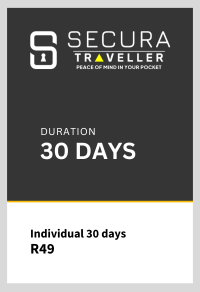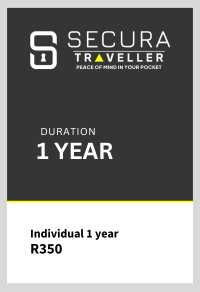World Female Ranger Week 2024
World Female Ranger Week on June 23-30, 2024, amplifies the voices of female wildlife rangers on a global stage.
Real Women, Real Stories, Real Impact. This pioneering global awareness week, spearheaded by international NGO, How Many Elephants (HME) celebrates and supports female wildlife rangers - They're bold, changing the game and paving the way for women to stand alongside men at the forefront of conservation, but they need allies.
Building on their success of World Female Ranger Week last year, reaching over 500 million viewers worldwide, this year’s event is set to be even bigger. There will be online and live events, global media interviews, plus a fundraising platform to raise vital funds for the rangers worldwide.
As champions of wildlife conservation, role models, educators and beacons of hope, female rangers are not only transforming attitudes towards the role of women around the world; they are showing the capabilities and success of females in traditionally male roles. However, less than 11% of the global wildlife ranger workforce is female. With women being natural communicators, protectors and investing their earned income in their families, bringing gender equality into the workforce is enhancing community conservation efforts and relationships.
The founder of How Many Elephants and World Female Ranger Week, Holly Budge says, "having patrolled with multiple ranger teams across Africa, I've seen first-hand how these bold women are impacting lives; Protecting wildlife, uplifting communities and empowering other women. WFRW highlights the significant gender imbalance in environmental conservation. My team and I will continue collating gender-specific data about female rangers globally, enabling us to identify their needs, find tangible solutions and help build effective policies to contribute towards positive outcomes; for female rangers and conservation as a whole."
The pandemic crippled tourism and funding for conservation projects globally. The lack of tourists visiting national parks led to many rangers losing their jobs or having significant salary cuts. The knock-on effect of this was huge. For example, one ranger in Africa may support up to 16 family members. Additionally, reduced vigilance in tourist hotspots left wildlife even more vulnerable to poaching.
The often-challenging work of rangers is paramount right now. Day and night, female rangers patrol wilderness areas, monitor wildlife, seize snares, work with communities and in some cases, arrest poachers, all to protect nature. Some rangers are away from their families for long periods, sometimes facing workplace security issues and battling social stigma. Many of these women have overcome adversity, poverty, and marginalisation. Becoming a ranger has empowered them, turned them into breadwinners and property owners, and has allowed them access to higher education and much-needed healthcare.
Holly and her team have identified over 4500 female rangers in 18 African countries so far, and over 5500 female rangers around the world, including in Guyana, Malaysia, Sri-Lanka, Indonesia, India, Tasmania and Scotland to mention a few.
Meet some of the women who give their all to protect wildlife from extinction.
- Kenya: Caren Yegon Cheptoo
Caren (21) is a Maasai woman, a female wildlife ranger employed by the Mara Elephant Project and the first recipient of the World Female Ranger Award by How Many Elephants. She was noted as a "top 1%" recruit and is now leading the Sheldrick Trust Mau De-Snaring Unit in the Mau Forest in Kenya to combat illegal logging and bushmeat poaching. Since June 2020, Caren's team have arrested 90 suspects for unlawful habitat destruction, destroyed 17 kilns, confiscated 56 bags of charcoal and 4,311 illegal posts, trees or timbers. They've also arrested eight suspects for bushmeat poaching and removed 182 snares and seized 39 kg of bushmeat.
- Zambia: Janet Sakala
Janet (35) is a ranger/dog handler in the K9 Unit for Conservation South Luangwa. Sadly, when Janet was 15 years old, she lost both her parents and was no longer able to go to school. Becoming a ranger has enabled her to become the breadwinner and be able to support her relatives. “One of the biggest challenges I face as a female ranger is that my ideas are not always heard. Communities here in Zambia often consider men to be superior to women and can easily discount the views and ideas of women. We know we are sharing this experience, and whilst we have not overcome this challenge, we know we can if we stay strong.”
- Liberia: Grace Kotee
Grace is a ranger in The East Nimba Nature Reserve (ENNR) in Liberia. Growing up as a child in a rural village, Grace felt bad when she saw people killing and eating wildlife. She promised she would do something to protect the forest resources of Liberia and the world at large. Grace still battles social stigma as some of her community think that working as a ranger “is not a feminine job” and she is often criticized. “Culture/ society sees a ranger career as a male job and doesn’t encourage me. Sometimes when I am riding my bike they tell me that I will not bear children if I continue.” A few of the challenges Grace faces at work are discrimination from her male counterparts and limited time with my husband and family.
- South Africa: Tsakane Nxumalo
Tsakane is a ranger in the all-female Black Mambas Anti-Poaching Unit in South Africa and a role model in her community. In the course of duty, the rangers face danger from poachers and wild animals. She says, "at first, people were sceptical that we, women, could do this traditionally male job and be good at it. Now we have their full support."
WFRW Ambassador, Dr Gladys Kalema-Zikusoka from Uganda, says “I’m delighted to support World Female Ranger Week. Gender equity in the conservation arena is such an important and prevalent topic. There is still much work to do but World Female Ranger Week plays a key role in raising awareness of the work of female rangers and women in conversation in the broader picture.”
Contact:
Holly Budge | holly@howmanyelephants.org | +44 (0) 7770 507686
About How Many Elephants
UK registered charity, How Many Elephants (1186238), is a powerful design-led awareness campaign and innovative in its 100% non-gory approach. It showcases the annual poaching rate of 35,000 elephants in Africa in a visual exhibition to inspire and educate a global audience about the devastating impacts of the ivory trade. How Many Elephants collaborates with and supports female rangers on the front line. Read more at www.howmanyelephants.org
About Holly Budge, Founder of How Many Elephants & World Female Ranger Week.
Holly Budge is a world-class adventurer and conservationist, who has been supporting female rangers for almost a decade. She has earned the rare privilege of patrolling on the front line with multiple all-female and mixed ranger teams across Africa. Recently voted as ‘Woman of the Year in Non-Profit’ and listed in the WISE100 ‘Top 100 Women in Social Enterprise’, Holly is the first woman to skydive Everest and has summited Everest. Through her adventures, she has fundraised over £500K. She founded her NGO ‘How Many Elephants’ in 2013 while studying for a Masters in Sustainable Design and her work has since been highly praised, including by Sir David Attenborough. Read more at www.hollybudge.com
Photo credit: How Many Elephants (Akashinga with Holly Budge 2)
























